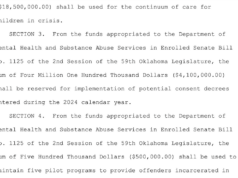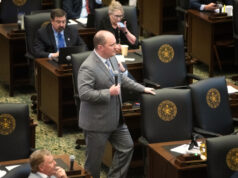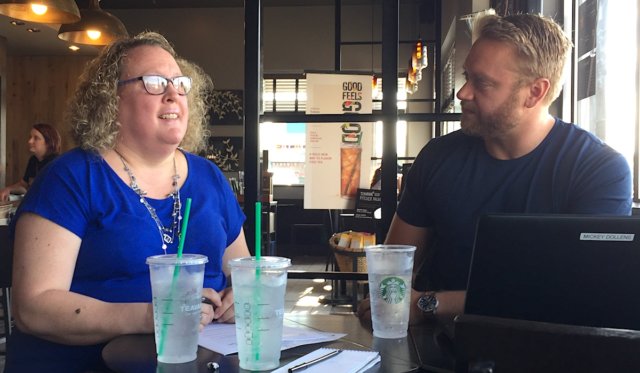

As Jennifer Brantley sat with Rep. Mickey Dollens Sunday night in a southwest OKC Starbucks, she explained why she adopted four brothers six years ago. She started to cry.
“I said, ‘I want to be one of those who makes a difference,'” Brantley recalled. “If I said it’s been all great, I’d be lying. But I wouldn’t trade it for anything.”
Minutes later, Brantley teared up again while explaining what the impending reduction of Oklahoma’s adoption-assistance payments would mean for her four sons, one of whom has special needs.
“Our voices need to be heard,” she said, explaining why she had written Dollens (D-OKC) about the situation.
The Oklahoma Department of Human Services announced July 11 that it would be making $30 million worth of program cuts that will affect seniors, the developmentally disabled, and adoptive and foster families. For Brantley and her husband, Scott, who live paycheck to paycheck, the 5 percent reduction in assistance payments will total $120 per month.
“Some people think, ‘Oh, that’s not a whole lot.’ But for four growing boys, that’s food. That’s clothes,” Brantley said. “They’re not taking this from us. They’re taking this from our kids.”
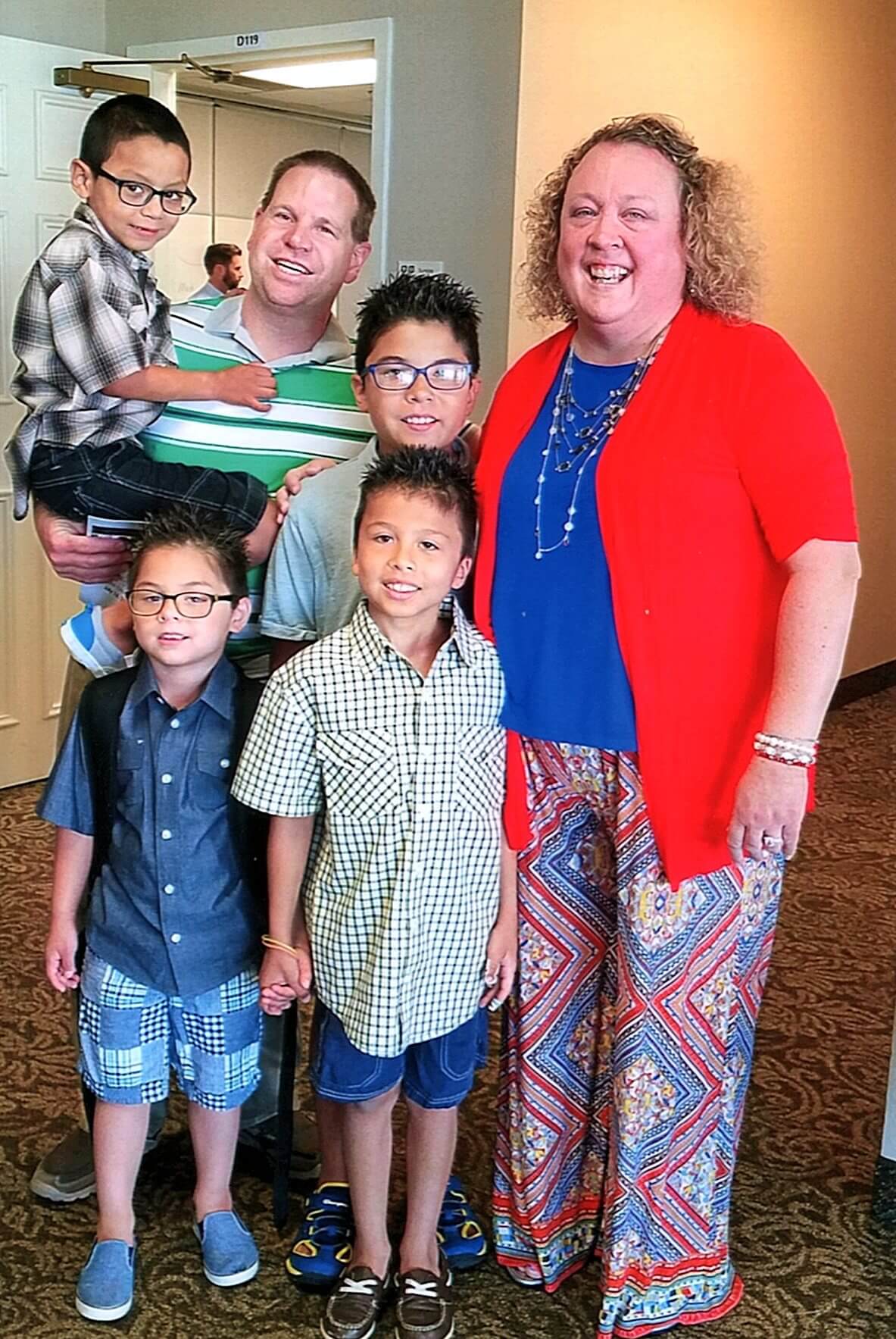
Speaker questions DHS adoption cuts
Exactly why the Brantleys are preparing to face a 5 percent reduction in their adoption assistance payments is slightly unclear. A DHS press release on the matter claims the agency has eliminated 1,200 employee positions in the past two years, but it also lists “growth in adoption assistance payments” and “increases in the state’s share of Medicaid programs” as factors.
Republican House leaders have questioned whether the cuts may have been announced for political purposes.
“Frankly, I am perplexed as to why an agency that could afford these programs last year would claim it can no longer afford them this year after receiving a $53 million increase from taxpayers,” House Speaker Charles McCall (R-Atoka) said in a release. “This is an agency that received $700 million in taxpayer dollars last session. We worked diligently during the legislative session to meet the needs of the agency as Director Lake requested, so this announcement to cut programs is surprising to say the least.”
But other GOP lawmakers have defended the agency by emphasizing its recent funding reductions.
“There’s no doubt that DHS’s costs have grown far in excess of appropriations,” Rep. Leslie Osborn (R-Mustang) said in a separate release. “Over the last few years, the Legislature has worked hard to increase the appropriation from $672 million to $700 million, but we can’t discount the fact that, during this same period, DHS has faced cost increases and lost revenue totaling at least $175 million. That is obviously far more than the $28 million increase in appropriations.”
Sunday, Dollens said he wants lawmakers to hear from people like Brantley on the issue.
“It’s an outrage when I get letters like the one I got from Jennifer,” he said. “We have to make this about people, not dollars and stats. This is about families in all 77 counties.”
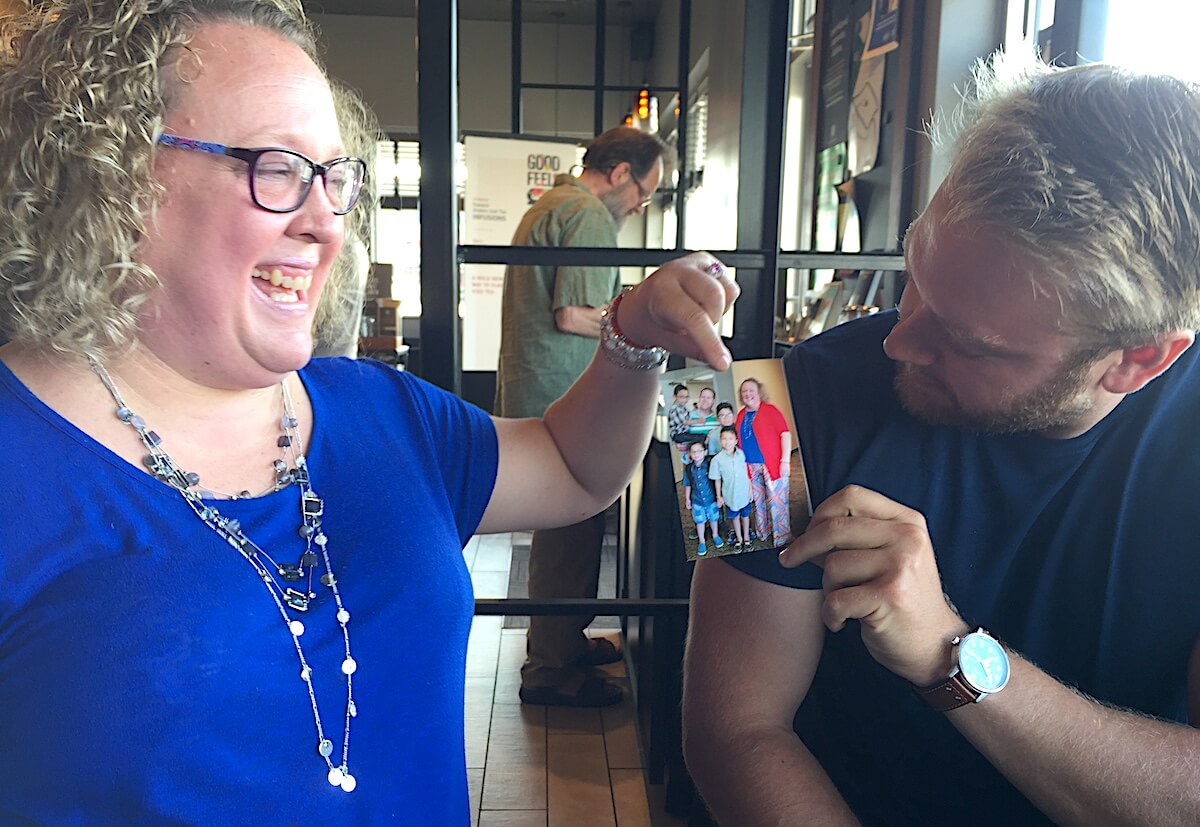
‘People aren’t going to adopt’
If the debate over DHS’s needs is going to be about people, Brantley’s adoption story stands as a powerful one.
Brantley doesn’t work because of her youngest son’s medical conditions, which she said make the 6-year-old function more like a 3-year-old. As a result, her family relies on her husband’s income and the $2,400 per month they currently receive via adoption-assistance payments.
“I may have to find a job,” Brantley said, nearing tears once again. “Hopefully one that is flexible when Miguel has to go to the hospital and I have to follow the ambulance.”
Miguel has nephrotic syndrome, epilepsy and other conditions related to the neglect he received as a baby, Brantley said.
“People aren’t going to adopt if they can’t get assistance,” she said.
She also discussed how she regularly has people “bash” her in person and on social media for receiving the assistance payments.
“You wouldn’t believe the negative comments we get. People say we shouldn’t have taken them,” Brantley said. “Well, my kids didn’t ask to be in this situation. They didn’t ask for a mom on drugs who was abusive. They didn’t ask for a father who abused their mother. They didn’t ask to be put in DHS custody.”
DHS communications director: ‘No one was blindsided by this’
DHS communications director Sheree Powell said Monday that the foster and adoptive payment cuts will still leave families receiving about $4-per-day more than they would have received prior to substantial increases that took effect after the Pinnacle Plan in 2012.
“Over the past four years, we have had about four incremental rate increases. This will be the first time we’ve had to make reductions,” Powell said, referring to unfunded program improvements. “That has been the particular thing that has hurt DHS the most is growing unfunded costs.”
She said despite critical statements from McCall and House Majority Leader Mike Sanders (R-Kingfisher), “no one was blindsided by this.”
“Everyone knew the budget situation DHS was in,” Powell said. “There are some (lawmakers) who just have a very hard time understanding and comprehending this. They just do. There are some that have a difficult time looking at appropriations. They look at the amount we were given last year on appropriations and the amount we were given this year, and they forget about the supplemental they had to give us this year. They’re also not taking into account the revenue failure.”
In his press release, Sanders put blame on the agency’s leadership, which no longer reports to a governing board but instead Gov. Mary Fallin herself.
“The Legislature did not make these cuts,” Sanders said. “We do not line item agency spending. Instead we trust our agency heads to be able to make the best decisions about what programs should be spared during tough budget times. These are the times when you forego the wish-list items but you still provide for the most vulnerable. Yet, those decisions would not bring public outcry and put political pressure on lawmakers to continue to increase funding without further accountability for how taxpayer dollars are spent.”
Powell disagreed, despite the agency’s $18 million increase in total appropriations over last year.
“We’re still facing a $30 million budget shortfall because of all the increases in costs of these programs that have mounted year after year after year that have not been funded,” Powell said. “We’ve been warning the Legislature about this every single year. We have been saying to them, ‘This is going to catch up with us at some point,’ and it caught up with us this year.”









